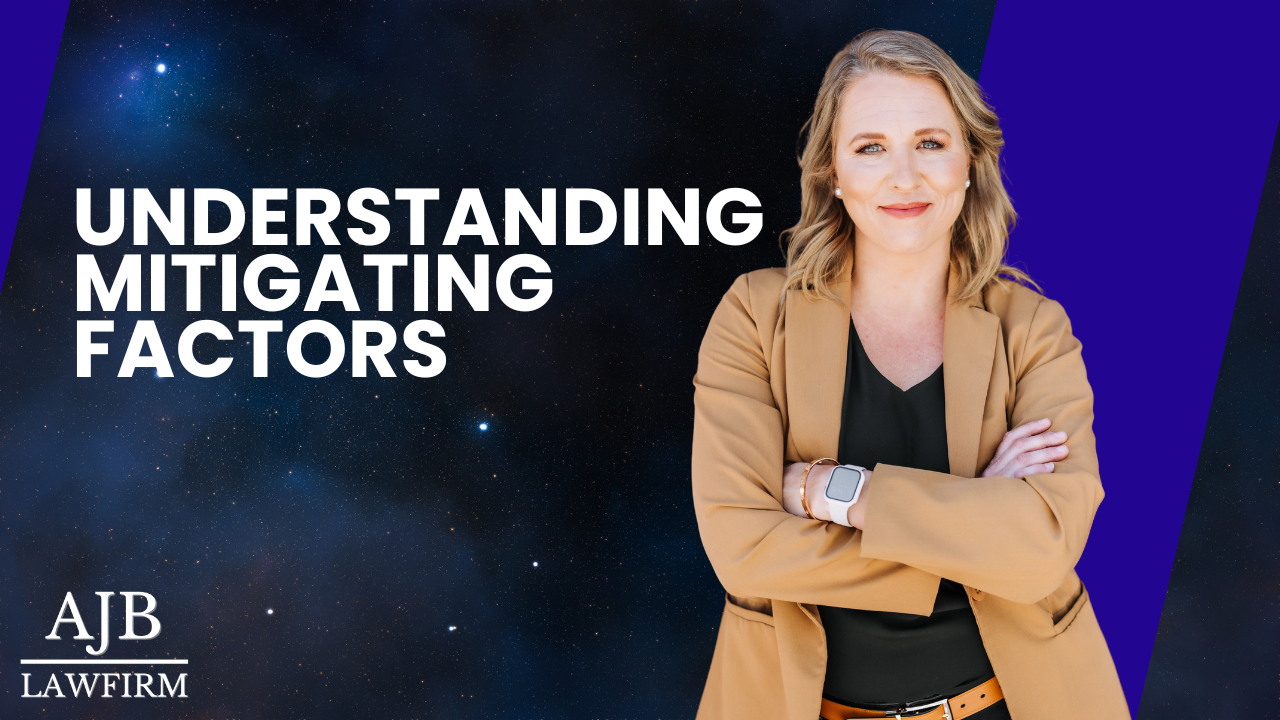Understanding Mitigating Factors in Arizona Criminal Sentencing
When facing criminal charges in Arizona, it's crucial to understand that the outcome of your case can be influenced by various factors, including mitigating factors that may impact plea negotiations and sentencing. In this post, we will delve into the concept of mitigating factors in Arizona criminal sentencing.
Whether you are a potential client, a concerned family member, or someone interested in learning more about the law, this information can provide valuable insights into how the legal system operates in Arizona.
Mitigating Factors: What Are They?
Mitigating factors are circumstances or elements of a case that, when presented during the sentencing phase, can potentially lead to a less severe punishment for a defendant. While the specific factors that can be considered may vary depending on the case, they generally revolve around demonstrating that the defendant deserves a more lenient sentence due to particular circumstances. The weight and relevance of these factors are determined by the judge's discretion.
Common Mitigating Factors:
No Prior Criminal Record: A clean criminal record can be a powerful mitigating factor. If the defendant has no previous convictions, it may suggest that they are less likely to reoffend and should be considered for a lighter sentence.
Age of the Defendant: Younger defendants, especially minors, may receive more lenient sentences as the court takes into account their immaturity and potential for rehabilitation.
Cooperation with Authorities: Defendants who cooperate with law enforcement and help resolve the case may be viewed more favorably during sentencing. **Remember never to cooperate with authorities until you have consulted with an attorney.
Remorse and Acceptance of Responsibility: Expressing genuine remorse and accepting responsibility for their actions can be a mitigating factor. It demonstrates an understanding of the consequences and a willingness to make amends.
Mental Health and Substance Abuse Issues: If the defendant has underlying mental health or substance abuse issues that contributed to the offense, these factors may be considered when determining an appropriate sentence.
Victim Impact Statements: Statements from the victim or their family detailing the impact of the crime on their lives can influence the judge's sentencing decision—either in a favorable or unfavorable way.
Defendant's Level of Involvement: If the defendant played a minor role in the crime or was coerced, their level of involvement can be a mitigating factor.
Additional Mitigating Factors:
Apart from the common factors, there are other aspects that might influence sentencing in Arizona:
Restitution: Making efforts to compensate the victim for their losses or showing a commitment to making amends can be a mitigating factor.
Duress or Coercion: If the defendant can demonstrate that they committed the crime under duress or coercion, this can be considered as a mitigating factor.
Rehabilitation Potential: Participation in rehabilitation programs or efforts to reform can be weighed in favor of a lighter sentence.
Cultural or Social Background: In some cases, a defendant's cultural or social background may have influenced their actions, which could be considered as a mitigating factor.
Impact on the Defendant's Life: If a harsh sentence would significantly impact the defendant's life or future opportunities, it may be taken into account.
Understanding mitigating factors is essential when navigating the criminal justice system in Arizona. These factors can significantly influence the outcome of your case, potentially leading to a more favorable sentence. If you or a loved one is facing criminal charges in Tucson, AZ, it's crucial to consult with an experienced criminal defense attorney like Amanda Bynum of AJB Law Firm. With her expertise and knowledge of Arizona's legal landscape, she can help you assess your case, identify relevant mitigating factors, and advocate for your best interests throughout the legal process.
Remember that the outcome of any legal case depends on the specific details and circumstances involved. If you have concerns or questions about your situation, seeking professional legal advice is always advisable. Contact AJB Law Firm today to discuss your case and explore your options for a robust legal defense.
